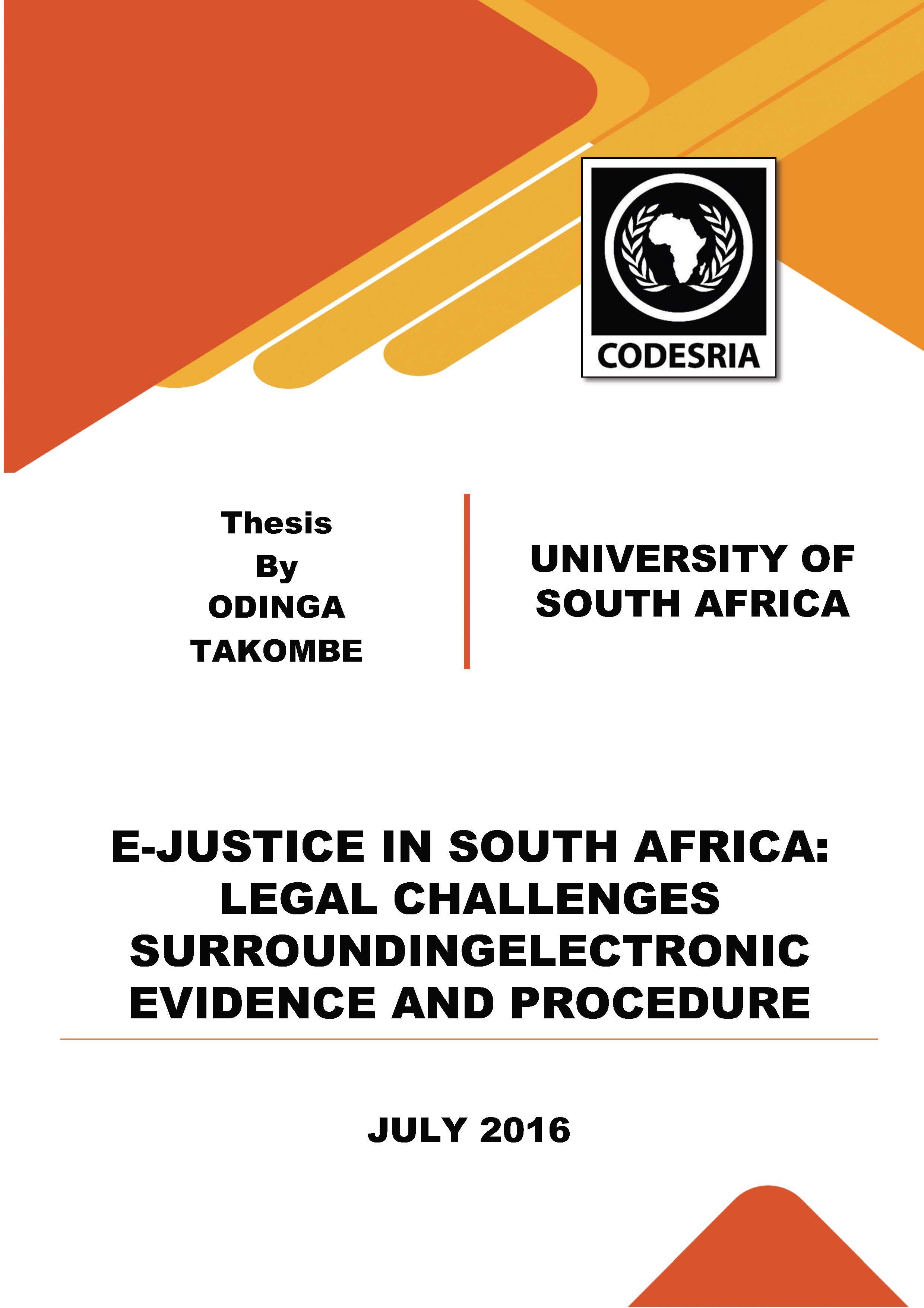E-JUSTICE IN SOUTH AFRICA: LEGAL CHALLENGES SURROUNDINGELECTRONIC EVIDENCE AND PROCEDURE
Mots-clés :
E-justice, electronic evidence, electronic procedure, electronic discovery, Information and Communication Technologies, electronic signature, digital signature, documentary evidence, real evidence, hearsay, electronic filing, electronic service, Public-Key InfrastructureSynopsis
The advent of information and communication technologies at the end of the twenty-first century constitutes a turning point in the history of humankind. Indeed these technologies have revolutionised the way one communicates, interacts, transacts, and does business as they allow information to be stored, managed, and transmitted rapidly and cheaply, and so create the rapid
transformation of modes of social and economic organisation. Ways of governing and administrating the public domain are not immune to these changes, nor is the administration of justice, which is also a public service. Justice is strongly reliant on information; traditionally, such information was fixed on a physical medium such as a paper. With the electronic revolution, the nature of information has changed from a tangible to a digital form. This requires the justice system to adapt and transform itself into an electronic justice system or e-justice.
This thesis examines the challenges that the introduction of technology in the justice system raises from the perspectives of both the law of evidence and also the law of civil procedure. From a law of evidence point of view, the advancement of technology has created an entirely new source of evidence, namely electronic evidence. A comparative analysis of the law
governing electronic evidence in England and South Africa reveals that the rules relating to real evidence, documentary evidence and hearsay in both jurisdictions are to a large extent able to deal with electronic evidence if they are complemented by rules specifically governing electronic evidence. In respect of civil procedure, the emphasis is on rules governing the filing and service of court documents or the discovery of documents. On these aspects South Africa is clearly lagging behind and needs to look at a more advanced jurisdiction from a technological point of view such as Singapore to reform its obsolete rules to accommodate the electronic filing and service of court documents and the electronic discovery of documents. England is also in advance of South Africa, and, so, South Africa can gain insight from that country as well.
Téléchargements
Références
American Bar Association (ABA) Digital Signatures Guidelines 1996 (abbreviated as ABA Digital Signatures Guidelines)
Brazell Electronic Signatures and Identities, Law and Regulation 2008 (abbreviated as Brazell Electronic Signatures and Identities, Law and Regulation)
Buckley, Tank, Whitaker & Kromer The Law of Electronic Signatures and Records 2004 (abbreviated as Buckley et al The Law of Electronic Signatures and Records)
Campbell (ed) E-Commerce and the Law of Digital Signatures 2005 (abbreviated as Campbell E-Commerce and the Law of Digital Signatures)
Cerrillo & Fabra E-justice: Using Information Communication Technologies in the Court System 2009






